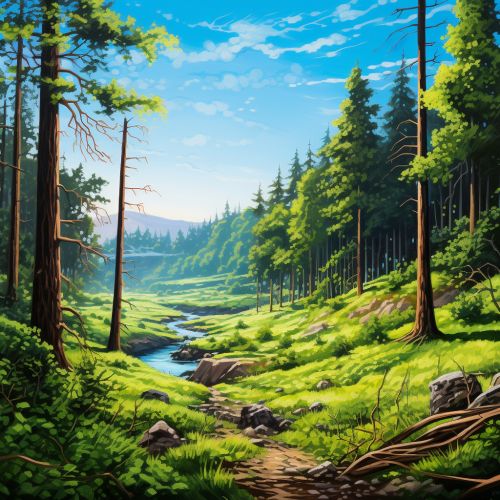The Nature of Things
Introduction
"The Nature of Things" is a broad concept that encompasses the fundamental characteristics and behaviors of the physical and natural world. It is a term that has been used in various contexts throughout history, including philosophy, science, and literature. This article will explore the nature of things from these different perspectives, delving into the underlying principles that govern the universe and our understanding of it.


Philosophy
In philosophy, the nature of things often refers to the inherent qualities or properties that define an object or phenomenon. This concept is central to many philosophical theories and discussions, particularly those related to metaphysics and ontology.
Metaphysics
Metaphysics is a branch of philosophy that explores the fundamental nature of reality, including the relationship between mind and matter, substance and attribute, potentiality and actuality. The nature of things in metaphysics often revolves around questions about what things are, why they are, and how they are.
Ontology
Ontology, on the other hand, is the philosophical study of the nature of being, existence, or reality, as well as the basic categories of being and their relations. In ontology, the nature of things is about understanding the different modes of existence and the categories of being.
Science
In science, the nature of things is often associated with the laws and principles that govern the physical and natural world. This includes everything from the laws of physics to the principles of biology.
Physics
In Physics, the nature of things is defined by the laws that govern the physical universe. These laws, such as the laws of motion or the laws of thermodynamics, describe how objects move and interact with each other.
Biology
In Biology, the nature of things is understood through the study of life and living organisms, including their physical structure, chemical processes, molecular interactions, physiological mechanisms, development, and evolution.
Literature
In literature, the nature of things can refer to the inherent characteristics of the human condition or the world as depicted through the written word. This can be seen in various literary genres, from poetry to fiction.
Poetry
In Poetry, the nature of things is often explored through the use of metaphor, simile, and other figurative language. Poets use these tools to convey complex ideas and emotions about the world and the human experience.
Fiction
In Fiction, the nature of things can be explored through the creation of imaginary worlds and characters. Through these creations, authors can explore different aspects of the human condition and the world.
